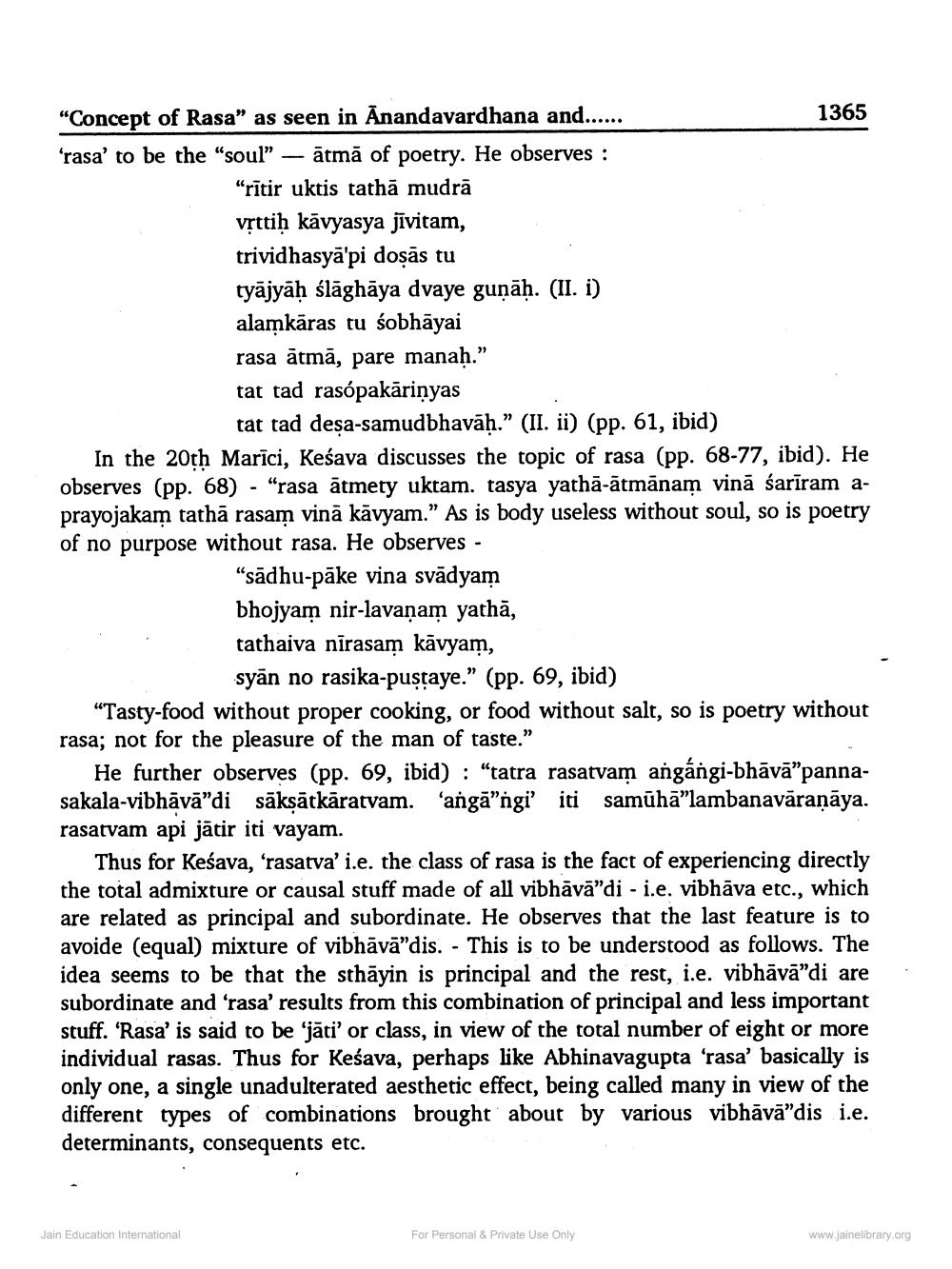________________
"Concept of Rasa" as seen in Anandavardhana and......
1365 'rasa' to be the “soul” – ātmā of poetry. He observes :
“rītir uktis tathā mudrā vịttiḥ kāvyasya jīvitam, trividhasyā'pi doşās tu tyäjyāḥ ślāghāya dvaye gunāḥ. (II. i) alamkāras tu sobhāyai rasa ātmā, pare manah.” tat tad rasópakārinyas
tat tad desa-samudbhavāḥ.” (II. ii) (pp. 61, ibid) In the 20th Marīci, Keśava discusses the topic of rasa (pp. 68-77, ibid). He observes (pp. 68) - "rasa ātmety uktam. tasya yathā-ātmānam vină śarīram aprayojakam tathā rasam vinā kāvyam." As is body useless without soul, so is poetry of no purpose without rasa. He observes -
"sādhu-pāke vina svādyam bhojyam nir-lavaṇam yathā, tathaiva nīrasam kāvyam,
syān no rasika-pustaye." (pp. 69, ibid) “Tasty-food without proper cooking, or food without salt, so is poetry without rasa; not for the pleasure of the man of taste."
He further observes (pp. 69, ibid) : "tatra rasatvam angángi-bhāvā”pannasakala-vibhāvā”di sākṣātkāratvam. 'angā"ngi' iti samūhā”lambanavāraṇāya. rasatvam api jātir iti vayam.
Thus for Keśava, 'rasatva' i.e. the class of rasa is the fact of experiencing directly the total admixture or causal stuff made of all vibhāvā”di - i.e. vibhāva etc., which are related as principal and subordinate. He observes that the last feature is to avoide (equal) mixture of vibhāvā”dis. - This is to be understood as follows. The idea seems to be that the sthāyin is principal and the rest, i.e. vibhāvā"di are subordinate and 'rasa' results from this combination of principal and less important stuff. 'Rasa' is said to be 'jāti' or class, in view of the total number of eight or more individual rasas. Thus for Keśava, perhaps like Abhinavagupta 'rasa' basically is only one, a single unadulterated aesthetic effect, being called many in view of the different types of combinations brought about by various vibhāvā"dis i.e. determinants, consequents etc.
Jain Education International
For Personal & Private Use Only
www.jainelibrary.org




